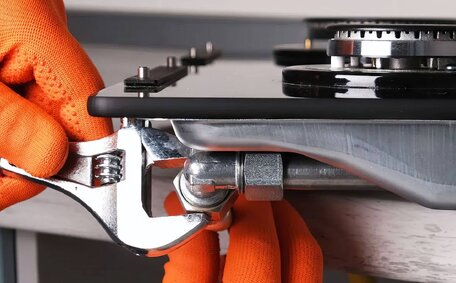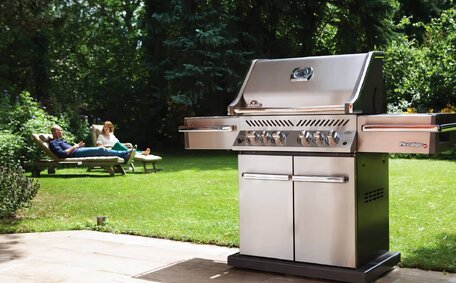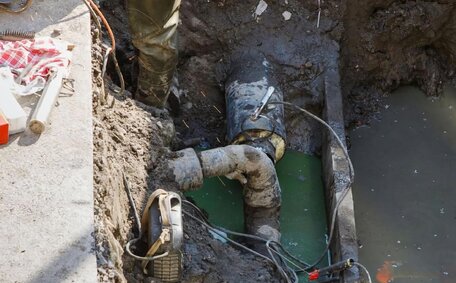
The role of gas fitting in kitchen renovations
When renovating your kitchen, it’s important to engage a licensed gas fitter to safely install, replace or alter any gas appliances and pipes. This ensures
Read MoreA reliable hot water service is essential for your daily comfort and convenience. Your hot water heater systems heat water for use in bathing, washing dishes and clothes, and more. There are a few main types of hot water heaters, also referred to as various hot water systems, used in homes and businesses:
Understanding your hot water system is key to early problem detection and ensuring timely repairs with professional assistance.
Hot water systems typically last 8-12 years on average before needing major repairs or replacement. Regular maintenance can mitigate water system issues and considerably extend your water heater’s lifespan. With regular use, critical components wear out over time.
Tankless water heaters, which may be a combination of gas electric or a hybrid of both, often last up to two decades because they meet hot water demand immediately, avoiding continuous maintenance of stored hot water. Electric hot water systems often remain operational for 12 to 15 years.
Knowing the age of your water system can inform decisions to replace it before problems arise.
Several indicators suggest when a hot water system may be failing and could require repair or replacement:
Paying attention to these indicators can prompt a hot water system inspection to uncover and address any concealed issues quickly.
Discoloured or rusty water emerging from your taps requires attention right away, as it’s a worrying sign that corrosion and sediment buildup is occurring inside your hot water system. Over time, the interior metal components of heaters corrode, releasing rust particles into the water.
Increasing discoloration often means it’s time to enlist a professional to examine potential corrosion. Rusty water is not safe to drink or cook with due to the metal contaminants. If you notice rusty water coming out of your taps, avoid using it for consumption.
One potential cause is a failing anode rod inside the new hot water heater tank. The anode rod attracts corrosion away from the metal tank itself. When it corrodes significantly, that protection disappears, allowing the tank walls to begin eroding.
Replacing an anode rod can extend the water unit’s lifespan if corrosion is not too advanced. If rust persists after installing a new anode rod, vital system components are likely decaying internally beyond ordinary repair, necessitating new water heater considerations.
The extent of corrosion may exhibit signs of a system failing, potentially necessitating the installation of a new hot water system.
Inconsistent or fluctuating temperatures could be a sign your hot water unit, even when the tap flow is steady, often signals an issue with the heating mechanism.
For gas hot water systems, Maintaining consistent hot water is important, with fluctuating temperatures often indicating burner or thermocouple issues that require attention. The functionality of electric hot water systems is crucial since heating elements generally have a lifespan of 5 to 8 years. As they deteriorate with age and corrosion, they struggle to evenly heat water, which might warrant a call to an emergency plumber.
In your gas water heater, fluctuating temperatures show potential problems with the gas supply or heating apparatus. Sediment buildup, airflow issues, or a failing thermocouple can cause the pilot light to go out or prevent the burner maintaining an even flame.
Inconsistent temperatures often indicate underlying issues that require prompt resolution for effective hot water system operation. Have a technician inspect your water heater, as they are equipped to address the most common issues and identify any repairs needed.
If low water pressure occurs when using your hot water tap, it likely indicates a problem with the water heater rather than your house’s main water supply. There are various reasons why such occurrences manifest:
If you notice low water pressure from hot taps, we advise having your system and heater inspected by a professional plumber. They can assess water flow, check for leaks, and determine if internal parts need repair or replacement.
Troubleshooting often depends on the specific model of your water heater. Here are some essential maintenance tips:
If issues persist after troubleshooting, seek a professional inspection and repair to ensure a comprehensive system check-up.
Some common issues with electric hot water systems include:
Try these basic troubleshooting tips for your electric water heater:
Be sure to call your technician if system problems linger despite your troubleshooting efforts. They can assess system issues and determine if repairs or replacement are needed.
Gas hot water systems can develop issues like:
Basic troubleshooting for gas systems involves:
Gas issues warrant immediate attention from qualified professionals to mitigate risks. If difficulties continue, it’s wise to contact a technician.
Solar hot water systems can run into issues like:
Solar hot water system troubleshooting demands skill to assess solar gain, examine components, and manage glycol fluids. Contact a solar specialist to optimise system performance and longevity through proactive maintenance.
Qualified technicians should manage complex repairs to pumps, heat exchangers, controllers, and leaks to prevent damage and inefficient repairs.
Determining whether to repair or replace your failing water heater depends on several factors:
Upgrading an outdated and inefficient water heating system can improve performance and deliver energy savings over 5-10 years, offsetting upfront replacement costs. There are also rebates and incentives for installing certain energy efficient systems.
For intricate repairs involving leaks, corrosion, or electrical problems, our technicians can gauge the damage and decide if the system is irreparable. Replacement may be the best route to restore reliable hot water supply.
Ongoing maintenance is crucial for maximising your hot water systems lifespan and performance. Here are some key maintenance tips:
Preventative maintenance can reduce operating costs and the incidence of breakdowns. Local licensed technicians can offer maintenance plans for hassle-free upkeep.
Access to dependable hot water is essential for everyday life. Identifying signs of a failing hot water unit enables you to address issues swiftly to prevent escalation.
Frequent temperature changes are a common sign that your system requires professional servicing. They can assess repair options or determine if replacement is the wiser choice.
Hot water units’ essential components typically degrade within 8 to 12 years of regular usage. Upgrading older heaters provides better energy efficiency and reliability.
Preventative maintenance is key for maximising lifespan. Simple tasks like flushing sediment or checking valves catch issues early and reduce breakdowns.
Cecil Hills Plumbing provides trustworthy services for the installation of new systems and repairs of any complexity. To arrange a consultation, please email us or call us at 1300 349 338.
When renovating your kitchen, it’s important to engage a licensed gas fitter to safely install, replace or alter any gas appliances and pipes. This ensures
Read MoreGas line repairs require a licensed plumber to locate any leaks, fix damaged pipes and fittings, and properly seal everything to prevent future issues. Contact our emergency plumbers for safe and proper gas line repairs.
Read MoreDuring emergency plumbing situations, crucial safety precautions include turning off the main water supply to prevent flooding, wearing protective gear to avoid injuries, clearing standing water to minimize damage, and calling a licensed professional plumber for assistance.
Read MoreCecil Hills, 2171 NSW
We will call back as soon as possible.




